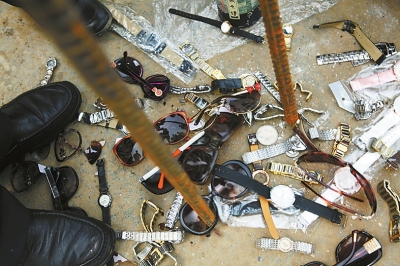A new report says as much as $461 billion was spent on counterfeit and pirated goods around the world in 2013, and that trade continues to grow.
The Organization for Economic Cooperation and Development released the report on April 18. The OECD studies economic information to help governments develop economic policies.
Counterfeit goods are illegally-made copies of products. They are made and sold without the permission of the owner. Intellectual property rights, such as copyrights and patents, are forms of ownership that can be difficult to enforce in international trade.
Counterfeit goods can travel through many countries before they reach the place where they are sold.

A study by the OECD found that international trade in counterfeit goods is rising. The group says the amount of money earned from this illegal activity may be larger than the illegal drug trade. It warns that the sales of pirated products may even finance terrorists and criminal groups.
The study found that trade in fake and pirated goods has grown to about 2.5 percent of the world's imported products — up from 1.9 percent in 2008.
The Deputy Secretary-General of the OECD, Doug Frantz, says counterfeit goods are the biggest single provider of money to the world's underground economy. He said that sales of such products provided some of the financing for the terror attacks at the French magazine Charlie Hebdo.
Frantz also said that counterfeiting creates products that endanger lives. He said examples include "auto parts that fail, pharmaceuticals that make people sick, toys that harm children, baby formula that provides no nourishment and medical instruments that deliver false readings."
Products from the United States, Italy, France, Japan, and Germany are the ones most often copied. Twenty percent of the illegal goods seized are copies of American-made products.
Among OECD member nations, the United States is most affected, the study found. China, it says, is by far the largest source of faked goods. However, Chinese-made products are increasingly being copied, too.
The report says that all countries that create new, innovative products depend on the protection of intellectual property rights.
It adds that OECD countries are hit most by counterfeiting. Thirty-four nations in Asia, Europe, and North and South America are OECD members.
I'm Mario Ritter.
本栏目视频字幕与文本并不完全对应,且视频播放缓冲时间较长,敬请谅解!












